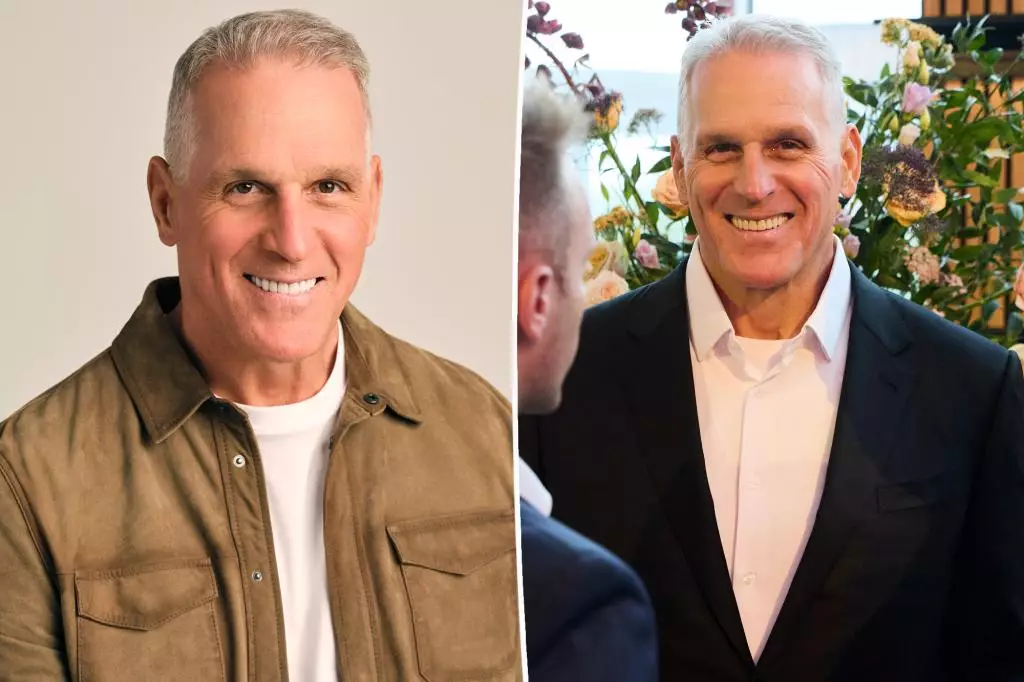Mel Owens, the 66-year-old star of the upcoming season of ABC’s “Golden Bachelor,” has ignited controversy with his outspoken dating preferences. He openly stated on the “In the Trenches” podcast that he would not consider women over 60, bluntly saying, “If they’re 60 or over, I’m cutting them.” Owens’ unapologetic insistence on dating only women between 45 and 60 who are “fit” and free from “artificial hips and wigs” sparked a wave of backlash. Critics quickly labeled his comments as ageist and superficial, exposing the complicated intersection of personal taste and societal bias in the world of senior romance.
Although Owens framed his criteria as honesty about his desires, the underlying message raises uncomfortable questions about how aging bodies and appearances are stigmatized—even among older adults themselves. While everyone is entitled to personal preferences, his stated criteria reflect a broader cultural obsession with youthfulness and physical aesthetics, which marginalize countless individuals who do not fit those narrow standards. Owens’ remarks unwittingly reinforce harmful stereotypes that aging equates to losing desirability, vitality, or self-worth.
The Unique Challenge of Dating Over 60 in the Public Eye
This backlash must be understood within the context of “The Golden Bachelor” as a senior dating show. The spin-off from the popular “Bachelor” franchise introduces a platform where older adults seek romantic connections under the scrutiny of a national audience. The first season featured Gerry Turner, who was 72 when he pursued love with women aged 60 and above, culminating in a brief marriage proposal to Theresa Nist, 71. Their union, which ended after only three months, was openly discussed in interviews—conveying both the difficulty and the hope inherent in late-life romance.
Nist’s reflection on the experience reveals a layered reality often absent from mainstream portrayals: While age-related challenges exist, emotional sincerity and human connection remain central. She mentioned receiving younger suitors via social media after the show, illustrating that attraction does not disappear with age but rather transcends chronological boundaries, defying Owens’ self-imposed limits.
The Danger of Superficial Standards Among Seniors
Owens’ emphasis on physical fitness, pristine health, and “no artificial hips or wigs” borders on a superficial checklist that dismisses the complexity of aging bodies and histories. Such remarks propagate unrealistic ideals that can damage the self-esteem of older adults, especially in an era where longevity is increasing and many continue pursuing active, fulfilling lives well past traditional retirement age. Fitness is undoubtedly valuable, but equating it strictly with youthful appearance or surgical enhancements fosters exclusion rather than inclusion.
This narrow outlook perpetuates a troubling narrative that the emotional and intellectual attributes of partner compatibility are secondary to external appearances. It diminishes the dignity of older adults who do not fit a narrow mold, promoting a culture of “othering” rather than genuine acceptance. Ironically, for a show dedicated to celebrating senior love, Owens’ comments may alienate precisely the demographic the show claims to represent.
A Broader Cultural Reflection on Age and Desire
The debate spurred by Owens’ remarks offers a valuable opportunity to confront broader societal biases surrounding age and desire. Aging populations are growing worldwide, yet mainstream media and social narratives frequently portray older adults as asexual or undesirable. “The Golden Bachelor,” regardless of its flaws, attempts to challenge these misconceptions by highlighting romantic pursuits in later life stages.
However, this attempt is undermined when the lead expresses restrictions that mirror ageist prejudices. Love and attraction—especially in later years—should ideally be about connection, compatibility, and shared values rather than rigid age brackets or aesthetic standards. By sidelining those over 60 with cursory dismissals, Owens implicitly perpetuates the invisibility and marginalization of many seniors who deserve representation and respect.
Moving Beyond Surface-Level Judgments in Senior Dating
It is essential to recognize that personal preferences will always exist, but public figures like Owens have a responsibility to balance honesty with sensitivity. Speaking openly about what one wants while simultaneously respecting the dignity of others embodies a more mature approach to senior dating. The harshness and bluntness of Owens’ comments could discourage many older adults from pursuing love or participating in public forums, out of fear of judgment or rejection based purely on age or appearance.
By contrast, embracing the diversity and multifaceted nature of aging—celebrating varied experiences, bodies, and emotions—would enrich the narrative around senior romance. Senior dating shows have the unique potential to redefine cultural perceptions, fostering a more inclusive and authentic dialogue about love later in life. Yet, this potential is easily compromised when ageist attitudes go unchallenged or are amplified by their own lead star.
In reshaping how we talk about love in later years, it’s crucial to move beyond shallow fixations on age limits and aesthetic criteria, acknowledging instead the profound humanity that remains vibrant and valuable regardless of the numbers on one’s birthday cake.

